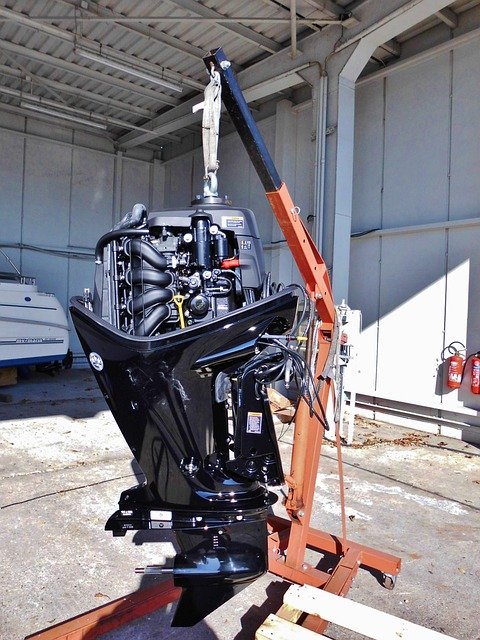Johannesburg: Technical Training in Mechanical Engineering & Industrial Systems
Johannesburg offers specialized technical training and educational programs in Mechanical Engineering, focusing on industrial systems, maintenance, and essential engineering sciences. Courses cover core areas like thermodynamics, fluid mechanics, and material strength, often available through TVET Colleges and Universities (Wits). These programs aim to build foundational problem-solving skills and practical expertise, preparing participants for careers as technicians, draughtspersons, and specialized fitters in the local mining and manufacturing industries.

Johannesburg: Technical Training in Mechanical Engineering & Industrial Systems
Johannesburg hosts a diverse ecosystem for mechanical engineering training that supports both aspiring artisans and future engineers. Learners can progress through TVET College programs, university qualifications, or QCTO-accredited occupational routes recognized by merSETA. With manufacturing, mining, energy, logistics, and building services active across Gauteng, programs emphasize applied learning, compliance, and work readiness through labs, workshops, and industry-linked projects available via local services and providers in your area.
Industrial systems focus
A practical industrial systems focus prepares learners to understand how machines, people, software, and processes work together on the shop floor. Training explores production lines, material handling, process control, and quality assurance, all within a safety-first culture. Students practice reading P&IDs, interpreting maintenance logs, and applying reliability concepts to reduce downtime. Exposure to automation, basic PLC interfaces, and condition monitoring creates a systems mindset that helps graduates contribute to throughput, energy efficiency, and lifecycle asset management in South African facilities.
TVET College programs
TVET College programs in Gauteng offer NATED N1–N6 Mechanical Engineering, NC(V) streams, and QCTO occupational certificates that lead to artisan trades. Many colleges integrate workplace experience through apprenticeships or learnerships coordinated with employers and SETAs. Learners develop draughting basics, machining, fitting, and safety competencies while building maths and science foundations. With clear articulation routes, students can progress from N courses to diplomas or combine practical hours with trade-test preparation, improving employability for workshops, plants, and service contractors across the province.
Foundational problem-solving
Foundational problem-solving underpins every mechanical role. Courses reinforce algebra, trigonometry, vectors, and Newtonian mechanics, then apply them to real faults in pumps, gearboxes, conveyors, and HVAC systems. Learners practice structured troubleshooting, from verifying symptoms to root-cause analysis using “5 Whys” and fishbone diagrams. CAD and drafting exercises strengthen spatial reasoning, while lab work emphasizes measurement accuracy, tolerancing, and instrument calibration. These habits support safer interventions, better documentation, and collaboration with electrical and process teams when resolving multidisciplinary issues in complex plants.
Thermodynamics and fluids
Thermodynamics and fluids form the core of machine and process performance. Students examine energy balances, heat transfer modes, and the behavior of gases and liquids in pipes and ducts. Practical tasks include pump selection from curves, evaluating NPSH, and sizing heat exchangers or fans for comfort and industrial HVAC. Training ties theory to local applications such as refrigeration, compressed air systems, boiler efficiency, and water reticulation. Emphasis on efficiency and losses helps learners propose improvements that reduce operating costs and environmental impact in facilities.
Maintenance specialization
Maintenance specialization pathways cover mechanical fitter, fitter and turner, and millwright competencies, with strong emphasis on safety and the Occupational Health and Safety Act. Programs introduce preventive and predictive strategies, including lubrication analysis, vibration basics, alignment, and inspection routines. Reliability-centered maintenance principles guide task planning and spares control. Trainees learn to interpret OEM manuals, maintain documentation, and communicate with supervisors and planners. This focus equips graduates to support shutdowns, uphold service-level commitments, and extend equipment lifecycles within regulated industrial environments.
Johannesburg and nearby Gauteng institutions offer a range of credible options. The providers below illustrate typical offerings and features available in your area.
| Provider Name | Services Offered | Key Features/Benefits |
|---|---|---|
| University of Johannesburg (UJ) | Mechanical Engineering diplomas, BEngTech/BEng programs | Accredited engineering pathways, modern labs, industry projects |
| University of the Witwatersrand (Wits) | BSc(Eng) Mechanical Engineering | Strong research culture, design studios, links to local industry |
| Central Johannesburg TVET College | NATED N1–N6 Mechanical Engineering | Workshops for machining and fitting, pathways to trade tests |
| South West Gauteng TVET College | N1–N6 and related NC(V) programs | Practical training, industry-aligned syllabi, work exposure |
| Ekurhuleni West TVET College | N1–N6 Mechanical and artisan routes | SETA-aligned training, apprenticeships/learnerships support |
| Artisan Training Institute (Gauteng) | Fitter, turner, millwright training and trade test prep | QCTO/SETA-aligned artisan training, hands-on facilities |
How to align learning with local industry
To get the most from Johannesburg’s training landscape, align modules and projects with the sectors that dominate your locality—manufacturing, mining, energy, and building services. Seek workshops that mirror real plant conditions, ask about access to labs and tooling, and confirm accreditation and pathways to trade tests or professional registration. Short courses in safety, instrumentation basics, and maintenance planning can complement core studies and strengthen readiness for multidisciplinary teams.
Building a progression plan
A clear progression plan can move a learner from foundational TVET studies to advanced diplomas or degrees, or from occupational certificates to a completed trade. Map out maths and science refreshers, schedule workplace exposure early, and collect evidence of practical tasks in a portfolio. Consider elective modules in controls, energy management, or reliability to deepen specialization. This structured approach supports smoother transitions between institutions and improves confidence when entering demanding industrial environments.
In Johannesburg, mechanical engineering education is both practical and future-oriented, blending fundamentals with exposure to real systems. Whether aiming for an artisan trade or a degree path, focusing on problem-solving, thermofluids, and maintenance disciplines positions learners to contribute meaningfully to safety, efficiency, and productivity across South Africa’s industrial base.




